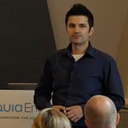I wholeheartedly agree with Robia Scott's insights on the five essential elements for a successful career as a life coach. Her emphasis on authenticity, vulnerability, active listening, powerful questions, and continuous learning resonates with my own experiences and observations in the field.
That being said, I would like to offer some additional perspectives to further enrich the conversation. For instance, while vulnerability is indeed a strength, it is important to strike a balance between being open and maintaining professional boundaries. According to a study published in the International Journal of Evidence-Based Coaching and Mentoring, coaches who disclose too much personal information may risk blurring the lines between their personal and professional lives, which could potentially harm the coaching relationship.
Regarding active listening, it is worth noting that this skill goes beyond simply hearing what the client is saying. As Scott rightly points out, it involves listening without judgment and with empathy. However, it is also important to listen for underlying assumptions, beliefs, and values that may be driving the client's behavior. According to a study published in the Journal of Positive Psychology, coaches who are able to identify and challenge these underlying beliefs are more effective in helping clients achieve their goals.
When it comes to powerful questions, it is worth noting that the most effective questions are often open-ended and focused on the client's values, strengths, and goals. For example, instead of asking "Why do you feel stuck in your current job?" a coach might ask "What values are most important to you in your work, and how can you align your current role with those values?" According to a study published in the International Coaching Psychology Review, this type of questioning helps clients to clarify their priorities and take action towards their goals.
Regarding continuous learning, it is important for coaches to not only seek out new knowledge and skills but also to apply them in practice. According to a study published in the Journal of Management Development, coaches who are able to effectively translate their learning into action are more successful in helping clients achieve their goals.
Drawing analogies to "McGyver" episode plots, we can see how the character's resourcefulness and problem-solving skills can serve as a role model for life coaches. For example, in the episode "The Human Factor," McGyver uses his knowledge of psychology to help a group of people overcome their fears and work together to escape a dangerous situation. Similarly, life coaches can use their knowledge of human behavior and motivation to help clients overcome their own challenges and achieve their goals.
P.S.: Some further ideas to consider maybe:
Authenticity: While being true to oneself is important, it is also essential to be aware of one's biases and blind spots. According to a study published in the Journal of Management, coaches who are able to recognize and manage their own biases are more effective in helping clients achieve their goals.
Vulnerability: While vulnerability can be a strength, it is important to be strategic about when and how much to disclose. According to a study published in the Journal of Applied Psychology, coaches who disclose too much personal information may be perceived as less competent and trustworthy by their clients.
Active Listening: In addition to listening without judgment and with empathy, it is important to listen for nonverbal cues such as body language and tone of voice. According to a study published in the Journal of Nonverbal Behavior, coaches who are able to accurately interpret their clients' nonverbal cues are more effective in building rapport and understanding their clients' needs.
Powerful Questions: In addition to being open-ended and focused on values, strengths, and goals, powerful questions should also be tailored to the client's unique context and challenges. According to a study published in the Journal of Positive Psychology, coaches who are able to ask questions that are both challenging and supportive are more effective in helping clients achieve their goals.
Continuous Learning: In addition to seeking out new knowledge and skills, it is important for coaches to engage in reflective practice, where they reflect on their own experiences and learn from them. According to a study published in the International Journal of Evidence-Based Coaching and Mentoring, coaches who engage in reflective practice are more effective in helping clients achieve their goals.
